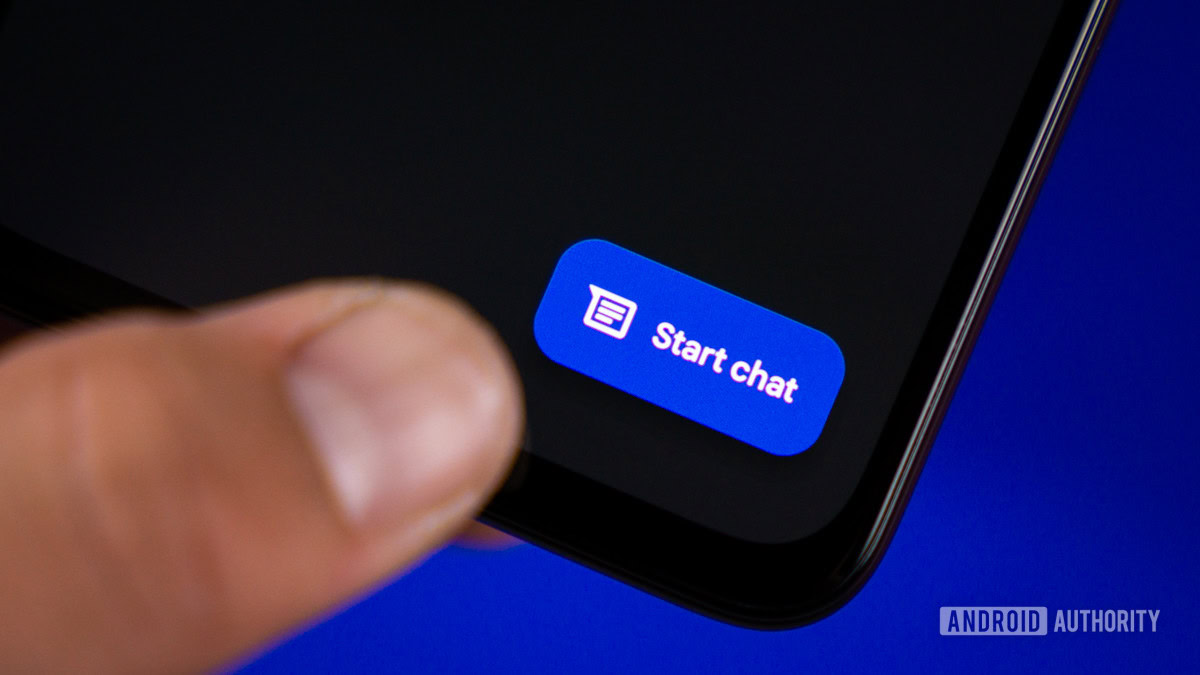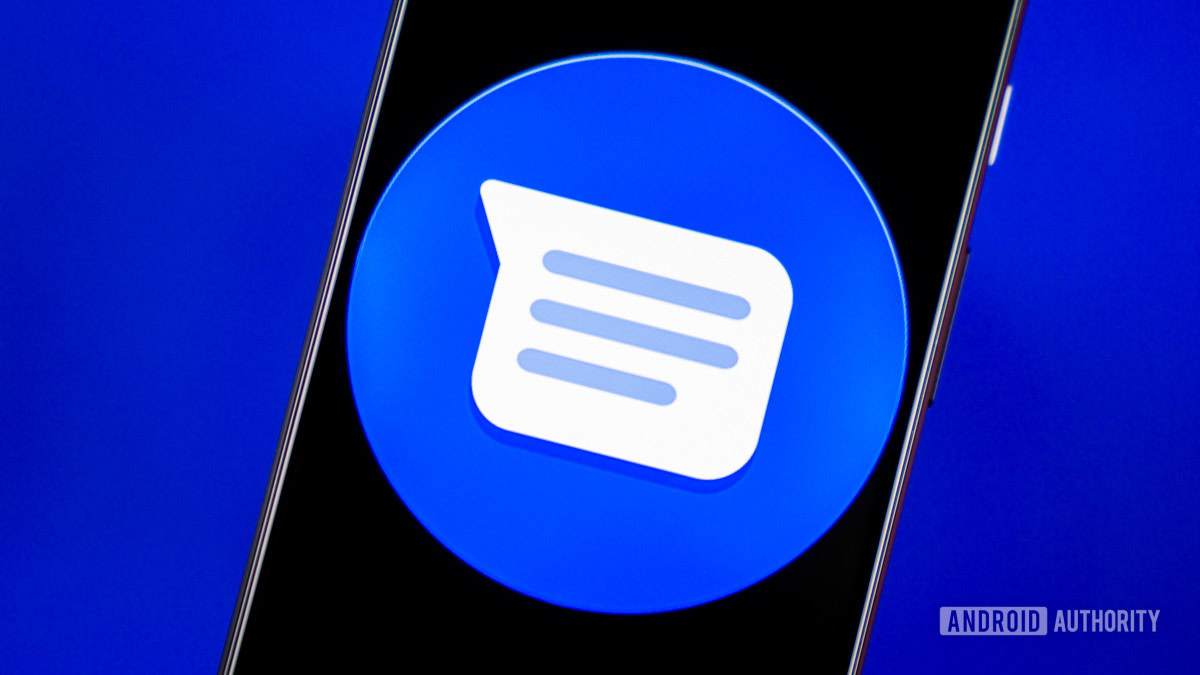
Edgar Cervantes / Android Authority
At Google I/O 2023, we heard the word “AI” for the bazillionth time. Google says everything AI does is coming to it. One of the things you get with the AI boost is messages with a feature called Magic Compose. Today, a few weeks after I/O, Google released the first public beta test of this new feature.
I’m lucky enough to be one of those beta testers. I’ve been playing with Magic Compose for a while and have some details to share with you. Let’s dive in!
Magic Compose: What is it and how does it work?

This new feature is baked right into the Messages app (formerly Android Messages and colloquially known as Google Messages). The Large Language Model (LLM) adds a new button to the message composition bar that brings you tools to format messages. These can be original messages or replies to previous ones.
Magic Compose is basically a step above Smart Reply, which is the messaging that users have been enjoying since 2018. Smart Reply analyzes the content of the received message and makes suggestions on possible replies. The user can tap one of these responses, and the app will automatically send them. This is perfect for quick responses, such as a “yes” or “no” response to a direct question.
Magic Compose is like Smart Reply on steroids.
This new feature is more complex than Smart Answer. This can help you not only to format full-length messages, but also to change the tone of those messages. You can also make your own message and make it sound funnier, more serious or Shakespearean. You can edit it, just for fun.
Unlike Smart Response, these suggestions and innovations don’t happen on a device. You need data connection access to Google servers to make it work. So, this means that Magic Compose breaks end-to-end encryption. For the system to work, the app sends up to 20 of your messages to Google servers. Google does not store these messages and does not use them to train LLM. But you lose E2EE with this service because Google “reads” your messages.
Let’s create a response
In this example I texted myself from my secondary phone (pretending it was from my cat Luther – it’s more fun that way). Luther is asking me if I’ve started playing The Legend of Zelda: Tears of the Kingdom, which of course I have.
In the text box, you can see three icons. From right to left, they’re the Voice Memos button, the Emoji button, and the new Magic Compose button. When you hit the new button, you’ll first see a disclaimer about how the feature is experimental. I hit the “try it” button.
After I hit “Try it,” I was quickly presented with a few possible answers to Luther’s question. At the top of the list are five that I can see without scrolling, five of which are positive with two responses and three are negative. Google doesn’t know I’ve played the game, so it’s trying to cover all the bases, which is helpful.
Since I started playing Kingdom Tears, I have to choose one of the two “yes” options. Interestingly, out of these first five choices, I didn’t find a critical alternative – both choices indicate excitement about the game. To be clear, I absolutely love the game, but what if I don’t? No response along the lines of, “Yeah, I don’t like it much,” or even, “Yeah, I have some ideas.” Naturally, I can scroll down a bit to see other options, but the system only generates certain responses, and there’s no way to ask it to do more. If you don’t like the initial selections, tap the Magic Set button again to clear it and tap it once more to create a new set.
Regardless, he said, “Yeah, I’m loving it so far!” The response is reasonable, so I choose. Unlike Smart Reply, tapping the selected option doesn’t send the message immediately. Instead, it just moves the text to the text box. Then I can hit the “Send” button or edit. Now let’s make some adjustments!
Write a response and let Magic Compose edit it
After you enter text in the text box, the Magic Compose button changes. It’s no longer a message bubble with an asterisk, but instead a pencil with an asterisk. This is the editor’s job. In my “Yes, I like it so far!” Message entered, I hit the editor button.
First, it brings the “Remix” section. This basically takes what you wrote and changes it a bit. All the options here say the same thing but in different words. It is good, but not very useful.
In the top bar, you can scroll through other editing types. The first is “Shakespeare”, which turns your text into Shakespearean speech. As silly as this is, it offers something more substantial than the “Remix” episode. After “Shakespeare” you have other styles like “Chile”, “Enjoyed”, “Regular” and others.
Confusingly, when I got to the “Formal” part, Magic Compose completely changed the meaning behind what I was saying. Somehow, he said, “Yeah, I like it so far!” He responded by saying. “I’m really enjoying my time here so far,” he replied when asked about playing video games. This doesn’t make sense. Apparently, the LLM has gone a little off the rails here.
When this happens, you can tap the 👎 icon to send feedback to Google. Once you do, you will be presented with the screen shown in the last screenshot above. Hitting “Start” will take you to the form to fill out.
Finally, a nice benefit of this whole system is that it checks your messages for spelling and grammar. If you’ve written a message full of mistakes yourself, you can hit the Magic Compose editor button, and it will fix it. This doesn’t seem like a feature specific tool, but it’s a side effect of reading what you’ve written and coming up with a new version. If you often send messages full of problems, this is an easy way before you send them.
Do you use this?

Edgar Cervantes / Android Authority
So far, it looks like Magic Compose might actually be useful. I can imagine this coming in clutch when you’re talking to someone you might be romantically interested in. Alphabetizing your messages can make them look more interesting. Likewise, it can help you text your boss to make sure your responses are professional and polite.
Do you use Magic Compose when you get it?
8 votes
Plus, it can help you develop ideas for what to say when you’re at a loss for words. For example, you can type “I’m sorry to hear about your dog” and Magic Compose can embellish that a bit. I tried this, and it came up with a very scary message.
I am so sorry to hear about your dog! I can’t imagine what you are going through right now. Please know you are not alone and I am here if you need anything.
It’s a great message from the original. It took a few more steps, but that message meant more to the recipient than it did to me in the first place.
Now the question is will you use this? Is this a trait you think will benefit your life? Or is it something you don’t care about? Let us know in the comments and be sure to answer the comment above!



